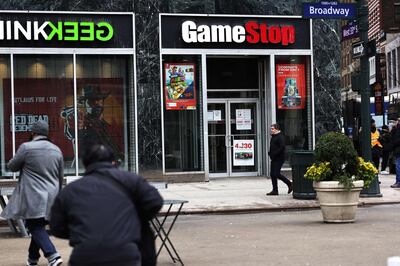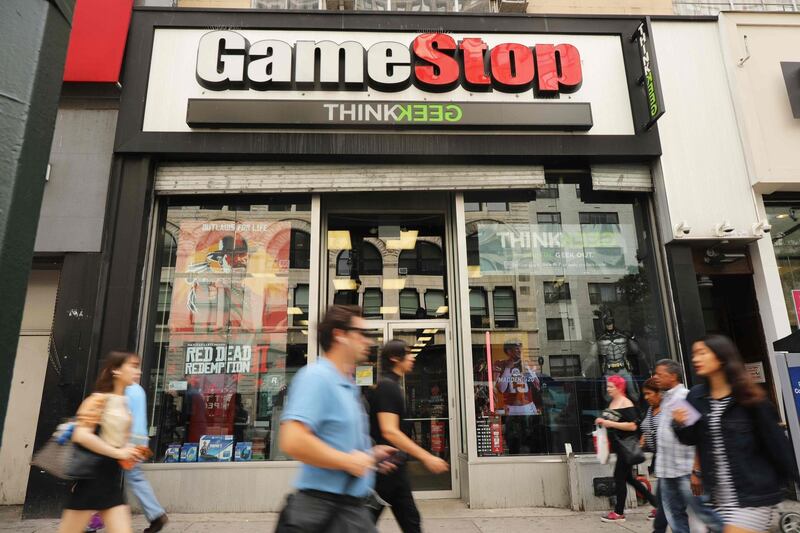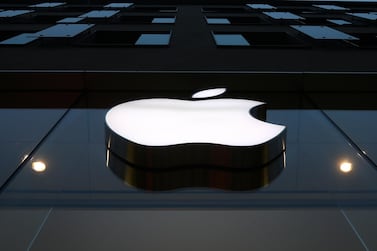For once, Main Street is beating Wall Street.
In a matter of weeks, two hedge-fund legends – Steve Cohen and Dan Sundheim – have suffered bruising losses as amateur traders banded together to take on some of the world’s most sophisticated investors. In Mr Cohen’s case, he and Ken Griffin ended up rushing to the aid of a third, Gabe Plotkin, whose firm was getting beaten down.
Driven by the frenzied trading in GameStop and other stocks that hedge funds have bet against, the losses suffered over the past few days would rank among the worst in some of these money managers’ storied careers.
Mr Cohen’s Point72 Asset Management has declined 10 per cent to 15 per cent so far this month, while Mr Sundheim’s D1 Capital Partners, one of last year’s top-performing funds, is down about 20 per cent. Melvin Capital, Mr Plotkin’s firm, had lost 30 per cent through Friday.
It’s a humbling turnaround for the hedge fund titans, who in 2020 staged a comeback by pouncing on the wild markets caused by the Covid-19 pandemic. But that crisis helped push thousands if not millions of retail traders into the US stock market, creating a new force that for now the professionals seem powerless to combat.
Their assailants are a collection of traders using Reddit’s wallstreetbets thread to coordinate their attacks, which seem to be focused on stocks known for being held short by hedge funds. The most prominent is GameStop, the beleaguered brick-and-mortar retailer that’s soared more than 1,700 per cent this month, but other targets include AMC Entertainment Holdings and Bed Bath & Beyond.
WallStreetBets boasts roughly 2.8 million members. Some of the more outspoken have taken an activist stance, portraying their campaign as taking a stand against such societal problems as financial inequality and generational injustice.
The pain is likely spreading across the hedge fund industry, with rumours swirling among traders of heavy losses at multiple firms. The Goldman Sachs Hedge Industry VIP ETF, which tracks hedge funds’ most-popular stocks, tumbled 4.3 per cent on Wednesday for its worst day since September.
Fund managers covered their money-losing short sales while trimming bullish bets for a fourth straight session on Tuesday. Over that stretch, their total outflows from the market reached the highest level since October 2014, data compiled by Goldman’s prime-brokerage unit show.
D1, which was founded in 2018 and had about $20 billion in assets at the start of the year, is buffeted to some degree from the attacks because private companies account for roughly a third of its holdings, and the firm has been reducing its exposure, according to people familiar with the matter. The fund is closed to new investments and has no plans to open for additional capital, one of the people said, asking not to be named because such decisions are confidential.
D1’s loss, described by people briefed on the situation, contrasts with a 60 per cent gain for Mr Sundheim, 43, during last year’s pandemic turmoil.
Melvin on Monday took an unheard-of cash infusion from its peers, receiving $2bn from Mr Griffin, his partners and the hedge funds he runs at Citadel, and $750 million from his former boss, Mr Cohen.
"The social media posts about Melvin Capital going bankrupt are categorically false," a representative said. "Melvin Capital is focused on generating high-quality, risk-adjusted returns for our investors, and we are appreciative of their support."

Until this year, Mr Plotkin, 42, had one of the best track records among hedge fund stock pickers. He’d worked for Mr Cohen for eight years and had been one of his biggest money makers before leaving to form Melvin. He’s posted an annualised return of 30 per cent since opening, ending last year up more than 50 per cent, according to an investor.
Another fund, the $3.5bn Maplelane Capital, lost about 33 per cent this month through Tuesday in part because of a short position on GameStop, according to investors.
Representatives for Point72, D1 and Maplelane all declined to comment.
The struggles at some of the biggest hedge funds may have contributed to Wednesday’s 2.6 per cent drop in the S&P 500, its worst decline since October. One theory behind the decline is that funds are selling long bets to get the cash they need to cover their shorts.
Mr Cohen, 64, is perhaps the best-known victim of this year’s turmoil so far. The new owner of the New York Mets, whose fund gained 16 per cent in 2020, has become a national figure after beating competition from Jennifer Lopez and Alex Rodriguez to buy the ball club.
Late Tuesday, Mr Cohen broke his usual habit of only tweeting about the Mets. "Hey stock jockeys keep bringing it," he wrote on the social media platform.
The horde of traders on Reddit that see themselves as sticking it to the establishment by hunting for heavily shorted stocks has added billions to the wealth of some of the world’s ultra-rich.
Larry Chen, chairman and chief executive officer of GSX Techedu, saw his fortune increase $4.2bn Wednesday as US depository shares of the Beijing-based online tutoring company rose 36 per cent, pushing his net worth to $15.6bn on the Bloomberg Billionaires Index.
Fellow Chinese billionaire Wang Jianlin’s wealth surged by $773m through his stake in AMC Entertainment Holdings. A flood of retail traders caused the stock to spike as much as 310 per cent even as the broader market slumped. Hedge funds such as Mudrick Capital, which owned 4.6 million shares in the cinema operator as of January 4, also got a boost.
Chewy co-founder Ryan Cohen added about $1.8bn with his holding in GameStop that has surged more than 1,700 per cent this year. Fellow investor Donald Foss, founder of subprime auto lender Credit Acceptance, now owns a stake worth about $1.2bn, according to the Bloomberg index.
Even the head of Tootsie Roll Industries benefited, with chief executive Ellen Gordon’s fortune rising $185m as the confectioner’s shares rose to a record, while National Beverage founder Nick Caporella saw his net worth jump $1.8bn to $6.8bn as shares of the maker of LaCroix soda water climbed 40 per cent.







